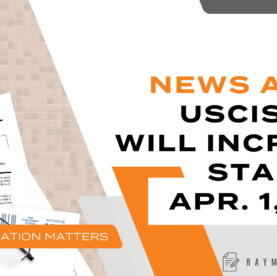Ninth Circuit: Employer’s Good Faith Reliance on HR Director is Not a Defense for Any I-9 Form Compliance Violations – Civil Penalty in the Hundreds of Thousands of Dollars
On August 7, 2017, the Ninth Circuit affirmed a several hundred thousand dollar penalty against a Phoenix, Arizona employer for violating several provisions of the United States Code related to an employer’s statutory requirement when hiring any and all employees: the Form I-9.
In DLS Precision FAB LLC v. Immigration & Customs Enforcement, a custom sheet metal fabrication company— DLS Precision Fab LLC (“DLS”)—experienced great growth due to its contracts with the United States Department of Defense. DLS’ employee roster grew as well. To assist, DLS hired what the Court described as a “well-accredited human resources director” (the “HR director”). Unbeknownst to the company, however, this individual shirked his responsibility to ensure the company’s compliance with the INA to the point, as later described by DLS, “of literally stuffing the government’s correspondence in a drawer and never responding.”
In 2009, Immigration & Customs Enforcement (ICE) came knocking at DLS’ corporate door. A notice of inspection and subpoena were served. ICE reviewed DLS’ I-9 forms, and a few weeks later, DLS was served with a Notice of Suspect Documents. A Notice of Intent to Fine was then served. As a result of the investigation, the United States Department of Defense cut off DLS from any federal contracts. At a hearing before an Administrative Law Judge (ALJ), DLS asserted the “good faith defense,” and, arguing that what happened was the fault of the HR Director, who was well known and accredited–the best of the best. The ALJ refused to apply the defense and found DLS in violation of two federal statutes: (1) continuing to employ an unauthorized alien; and (2) failing to properly complete, retain, or produce I-9 forms. A $495,250.75 penalty followed.
DLS appealed to the Ninth Circuit, but the Court, agreed with the ALJ as to DLS’ violations of the statutes, and the finding that there exists no defense of good faith to violating the I-9 form. The Ninth Circuit wrote:
According to DLS, the “peculiar facts” are that DLS made a good faith effort to comply with [immigration law] employment requirements by hiring the HR director, but the HR director exhibited bad faith by neglecting his duty to keep DLS compliant. We are not persuaded by this argument. For one thing, these facts do not strike us particularly peculiar.
DLS is not the first employer to hire an employee with the expectation that he or she will comply with the law only to be disappointed, nor is it likely to be the last. More broadly, DLS asks us to disregard the company’s responsibility for hiring and supervising its own employees. The HR director was acting as DLS’s agent, and his failure to perform his responsibility may properly be imputed to DLS. We cannot, in any event, effectively rewrite the statute to extend the good faith defense to substantive violations. . . .
Is your company planning to rely on a “good faith defense” when ICE comes knocking at the corporate door? If so, it is time to rethink and be proactive to ensure full, complete compliance with all I-9 form statutes, and regulations. Anything shy of full compliance is legally unacceptable.
If you have questions about this post, your rights, or any other immigration law issues, please contact me at rglahoud@nmmlaw.com.



